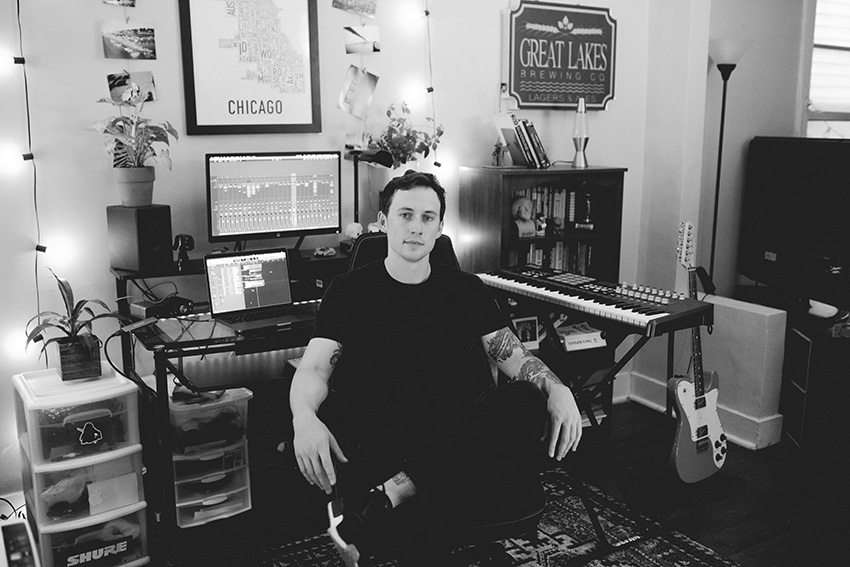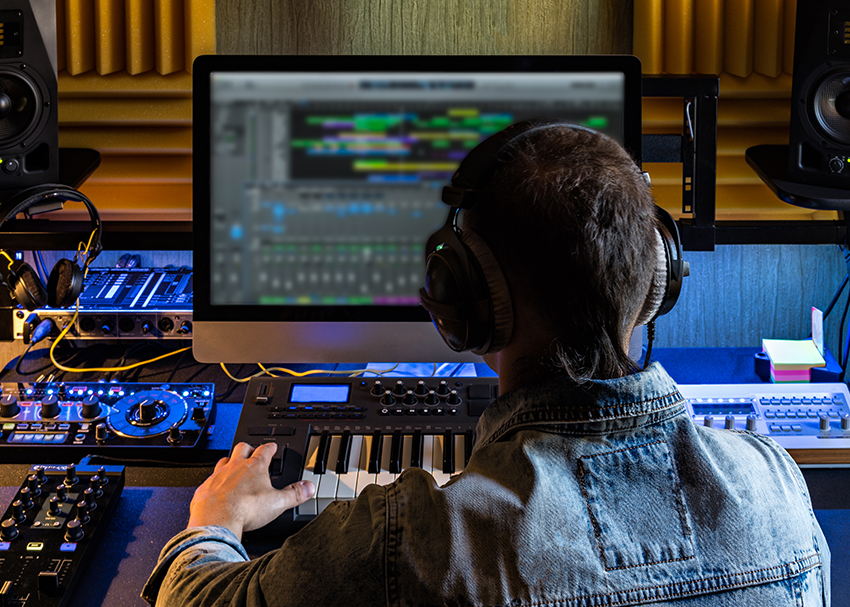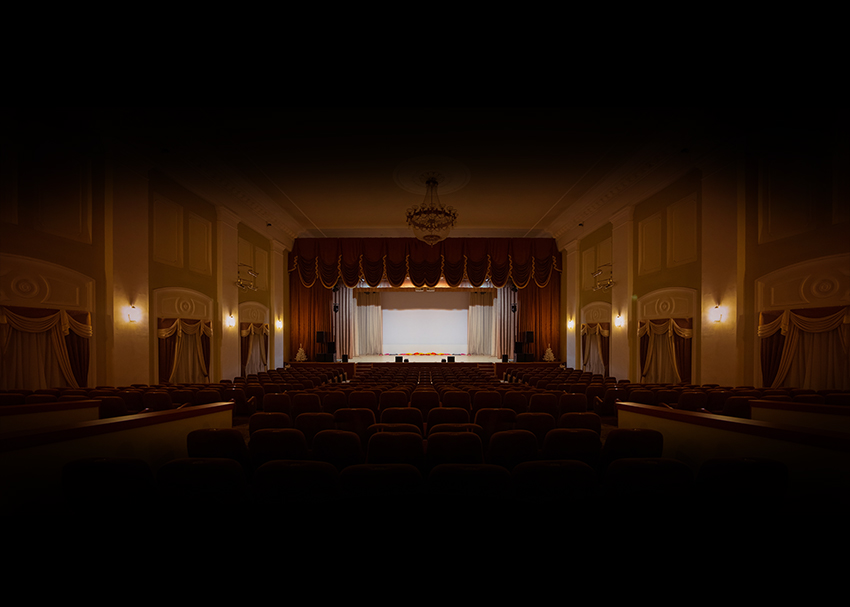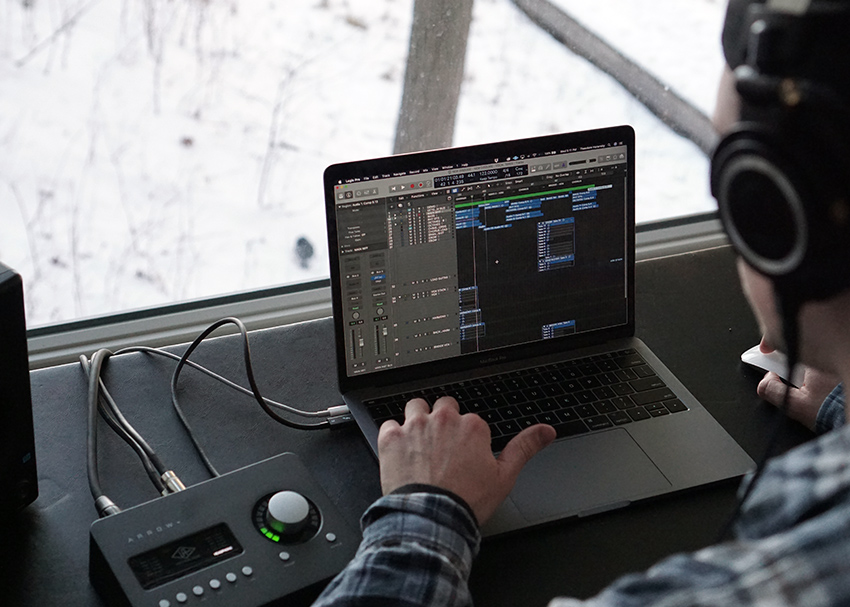At the time of writing, it has been nearly eight months since the world of live entertainment shut down. That hardly seems correct because it feels like it’s been eight years. Sure, there have been a handful of drive-in concerts, but let’s be honest — it just ain’t the same. While much of Europe goes back into lockdown, we wait with bated breath to see how the U.S. fairs another wave of the coronavirus during the winter and spring months. Putting a timeframe on when touring will resume is pointless because there are just too many unknowns. However, as I mentioned in Part I of this series, I believe there are practical steps that everyone can be taking during this time to improve their craft and become smarter musicians.
Take Care of #1
This might elicit a resounding “duh,” but sometimes you just need to hear it from someone else. The first step to weathering this storm is to make sure you are taking care of yourself. I don’t think enough people are discussing the mental ramifications that this pandemic has had on musicians and entertainers. Everyone processes in different ways.
Personally, it has pulled back the veil on just how “unessential” this career path is. Of course, the validity or necessity of any given career path is completely subjective; it is impossible to put a concrete value on quality of life. A life without music hardly feels like a life worth living. When the dust initially settled after the first lockdown, I couldn’t shake the thought that I should have pursued a career more predictable or “essential.” I think the first step is letting yourself feel these feelings of doubt and anxiety. This pandemic has limited every single musician in the world. It bodes well to remember that you are not the only one feeling lost during this time. Organizations such as Hope for The Day and NAMI are great resources for better understanding mental health. Sometimes, just talking to someone can help with processing trauma (such as a global pandemic or loss of income). Psychology Today is a great resource for finding someone in your area that fits into your budget/health insurance plan.
Related: The Quarantined Musician, Part I
COVID-19 hit. Live music ended. Now what? TJ offers advice for musicians looking to cope | Read »
Educate Yourself
In Part 1, I wrote a lot about taking ownership of your career. That process begins with education. A lot of young musicians I talk to are always really eager to sign a record deal, hire a manager, etc. However, I think it’s important to first ask yourself “Why should I sign this contract?” Sure, record labels have a lot to offer and often help grow an artist’s career, but every contract is a compromise. Handing over ownership of your art should not be taken lightly.
Take the time during quarantine to learn exactly how things like royalties, booking contracts and publishing deals work. Do a little homework on how your favorite artists make their living. There are great resources out there for understanding music industry basics (Donald Passman’s “All You Need to Know About the Music Business” comes to mind). Opportunities and standards in the music industry often change at breakneck speed, so even seasoned veterans can learn something new by doing a little research. Personally, I find music-related podcasts infinitely interesting and educational. A lot of my favorite podcasts feature artists that I admire in a more casual environment, talking about how they find inspiration and success. “Pass-Through Frequencies” with Jim Adkins and “Where Are All My Friends” with Andrew Cramb are a few of my current favorite podcasts that I have found incredibly enlightening. Whatever type of music or genre you play, there are educational resources out there for you.

Push Record, Make Magic
This might be over-simplifying things a bit, but I have always felt that well-written songs with the appropriate recording are the backbone that the rest of the industry is built on. It is all about the songs. We are also living in a time where musicians do not need multi-million dollar advances and studio time at Sound City in order to make a quality sounding album. In fact, some of the biggest albums of our time are being recorded in home studios (Billie Eilish’s When We All Fall Asleep, Where Do We Go? was famously produced in her brother Finneas’ small bedroom studio). Regardless of your career goals or experience level, quarantine is a great opportunity to learn more about music production. I believe that the music industry will be even more recording-focused until touring can safely come back. The ability to properly record and mix your own music is an invaluable tool. It is another step in the process of taking ownership of your own career. Aside from the obvious monetary benefits, learning about things like microphone polar patterns, multi-band compression and the EQ spectrum will make you a smarter musician.
The wealth of production-related educational resources out there is actually quite intimidating. There are hundreds of YouTube videos for any given specific technique, but it can be a little overwhelming when MetalGuy420 tells you to set a slow attack on your snare compressor but RockGod69 says you should squash it with a fast attack and slow release. It is easy to feel overwhelmed when first diving into the endless expanse of music production. What I recommend is doing some research on who produced your favorite albums. A lot of those producers have their own websites, YouTube channels, or online classes. Warren Huart’s channel “Produce Like a Pro” and “GetGood Drums” are both solid and professional YouTube channels that I have utilized many times. “Mixing Music” and “SOS Recording and Mixing” are two podcasts that have a ton of great information in an easy to understand format. I have even learned a lot from the Logic Pro X public Facebook group (there are multiple groups for whatever DAW you prefer).
I believe it’s important to understand that becoming a professional engineer or producer takes a whole lot of practice and time. This is not to say that everyone should be recording their albums at home with closet vocal booths and MIDI drum packs. Every artist and project is different. Sometimes you have to separate the engineering brain from the creative brain in order to be effective in either realm. Regardless of your end goal, simply learning the basics of recording and production will make you a better studio musician so that when you get into a studio with a different producer, you can be sure that you are spending your time (and money) wisely and effectively.
Write, Write, Write!
In Chicago, we are currently going through a long and cold winter. No indoor dining, no concerts, no movie theaters. As grim and bleak as the forecast feels, this winter might also be an opportunity to write without distraction. At this point, it feels like musicians really don’t have much of a choice except to bunker down and get creative. I am well aware that the creative flow is not a faucet that can simply be turned on and off. It is hard to feel inspired when the world feels like a dumpster fire, so it’s important to also be patient with yourself. Don’t edit yourself in the moment. Some of my favorite song ideas sprouted from the remnants of other ideas that just didn’t click. Writing often feels like a muscle that gets stronger with exercise. It might get painful in the process, but growth is incremental. One day, we will all be on stage again. Hopefully we will be better songwriters when we do.
In Part 3, I will discuss some essential steps that every first-time home producer should take, and the equipment needed to help make it possible. Networking in 2020 is also an odd quagmire to navigate, but I think there are opportunities available for reaching like-minded musicians and producers. Stayed tuned for Part 3!
Related: The Quarantined Musician, Part III
Making it through to the other side, with all the right gear to tackle your project | Read »






Leave a Reply